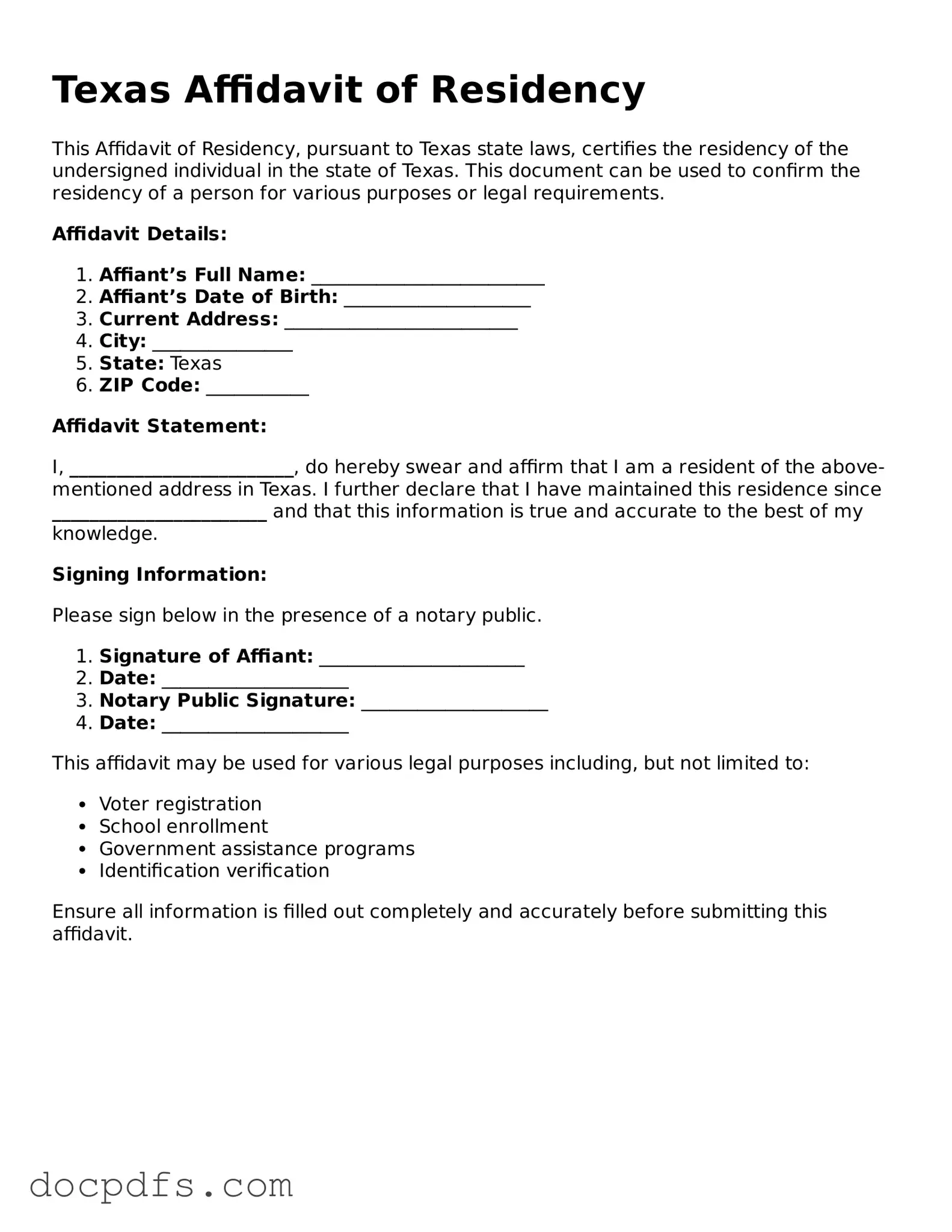Free Texas Affidavit of Residency Form
The Texas Affidavit of Residency form is a legal document used to verify a person's residence in Texas. This form is often required for various purposes, such as enrolling in school or obtaining a driver's license. By providing accurate information, individuals can confirm their residency status and fulfill necessary requirements.
Open Affidavit of Residency Editor Now

Free Texas Affidavit of Residency Form
Open Affidavit of Residency Editor Now

Open Affidavit of Residency Editor Now
or
⇓ Affidavit of Residency
Finish this form the fast way
Complete Affidavit of Residency online with a smooth editing experience.